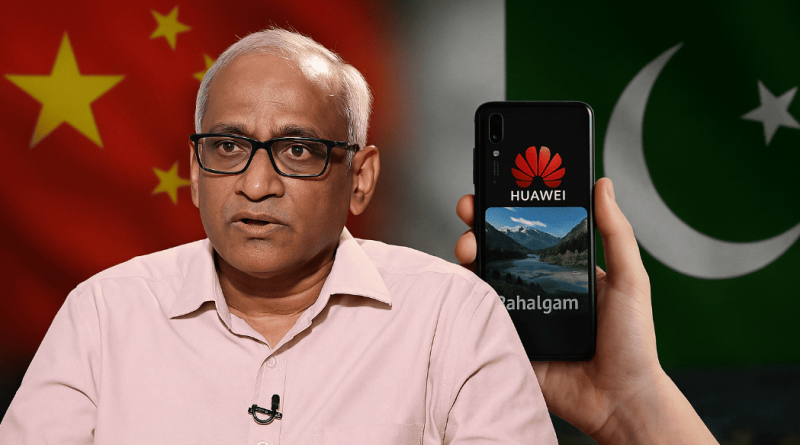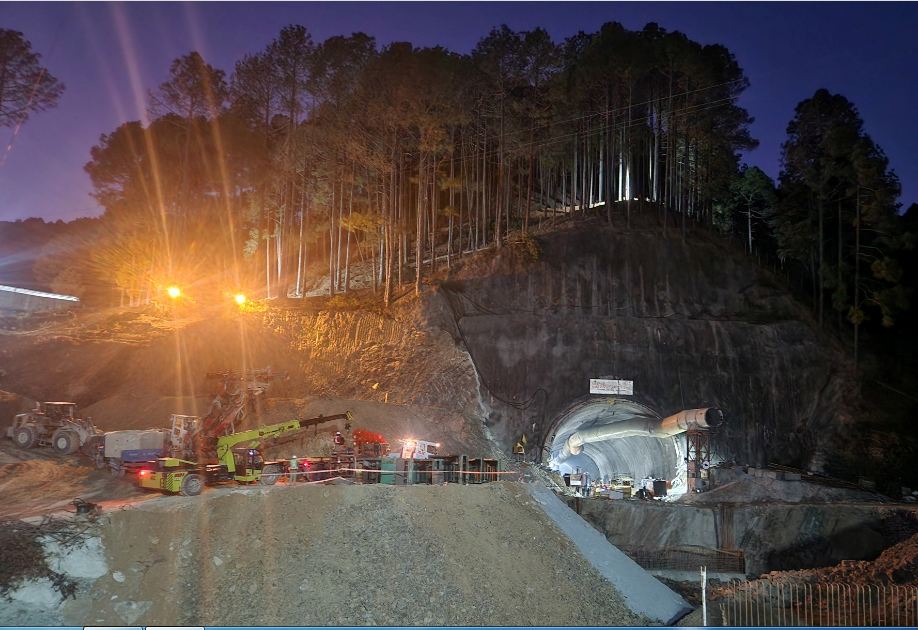Chinese Role in Pahalgam Kashmir Attacks: Huawei Phone, Spy Slides
Kondapalli further alleged that Chinese agencies had provided Pakistan with detailed satellite imagery of the Pahalgam region prior to the attack.
A leading Indian academic has alleged that Chinese technology and intelligence support played a role in a deadly militant attack in Kashmir earlier this year, raising questions over Beijing’s commitments to international counter-terrorism pledges.
In an interview with Indian news agency ANI, Professor Srikanth Kondapalli, a Chinese studies expert at Jawaharlal Nehru University (JNU), said evidence recovered from the April 22 attack in Pahalgam pointed to direct Chinese involvement.
He alleged that satellite imagery, communication equipment, and diplomatic shielding at the United Nations Security Council all indicated what he described as Beijing’s support to Pakistan in matters of cross-border militancy.
The claims, if verified, could add a new dimension to the already fraught India-China-Pakistan triangle, where territorial disputes and security tensions have shaped much of South Asia’s geopolitics.
Huawei Device and Satellite Links
Professor Kondapalli said Indian security officials had recovered a Huawei phone from one of the militants killed in the Pahalgam attack. He claimed the device was connected to a Chinese satellite network and had been used to send messages to handlers in Pakistan shortly after the assault.
“On April 22nd, when the Pahalgam incident took place, one of the terrorists was carrying a Huawei phone with Chinese satellite connection. He was messaging back to Pakistan after the Pahalgam attacks. So, there is a Chinese role here,” the JNU scholar told ANI.
According to him, Indian authorities are “in possession of this device,” which he described as proof of direct technological involvement.
Kondapalli further alleged that Chinese agencies had provided Pakistan with detailed satellite imagery of the Pahalgam region prior to the attack. He said as many as 120 to 129 slides were shared, containing GPS coordinates and high-resolution mapping of the area.
“This is another incident where the Chinese were helping the Pakistani side, despite the counter-terrorism pledge with the Indians, also with the international community in the SCO [Shanghai Cooperation Organization],” he said.
The UN Security Council Dimension
Beyond the battlefield, Kondapalli pointed to diplomatic maneuvers at the United Nations Security Council’s 1267 Committee, which deals with global terrorist designations.
He said that Chinese and Pakistani representatives had pushed to delete the name of a militant group called The Resistance Front, which initially claimed responsibility for the Pahalgam attack.
“The fact that they took responsibility first two times indicates their role, and their name has been removed. Instead, the Baluch Liberation Army and the Majid Brigade were mentioned,” he argued.
The professor suggested that these moves undermined international efforts to hold accountable those directly linked to the attack.
He also referred to tensions within multilateral forums, claiming that the Tianjin Declaration—issued after the incident—had included watered-down references to the Pahalgam attacks under pressure from Pakistan, even as Russia had reportedly pushed for their inclusion.
Wider Security Context
Professor Kondapalli’s remarks fit into a broader pattern of accusations and suspicions shaping South Asian security discourse. He referenced earlier instances where China allegedly provided operational support to Pakistan, including during “Operation Sindoor”.
According to him, Beijing supplied military equipment such as JF-17 and J-10 fighter aircraft, Wing Loong drones, and HQ-9 surface-to-air missile systems, which he described as “offensive in nature.”
Following the April 22 incident, Chinese Foreign Minister Wang Yi had called for an “impartial investigation” into the attacks. Kondapalli contrasted this with China’s refusal to allow outside probes into sensitive issues such as unrest in Xinjiang or the origins of the COVID-19 pandemic.
“For India, it is not the time for investigation, it is time for action,” he said, arguing that repeated attacks traced to cross-border militants required decisive measures rather than dialogue.
Fragile Balances in South Asia
The Pahalgam attack and its aftermath highlight the fragile trust deficit between New Delhi, Islamabad, and Beijing.
While India and China are both members of the Shanghai Cooperation Organization, where counter-terrorism is a stated priority, Indian analysts such as Kondapalli argue that Beijing’s actions suggest parallel alignments with Pakistan that undercut cooperative frameworks.
For New Delhi, the issue strikes at the core of its longstanding concerns about cross-border militancy and the security of Kashmir.
For Beijing, meanwhile, any suggestion of complicity carries international implications, particularly as China seeks to project itself as a responsible global power with a stake in peace and stability.
Neither China nor Pakistan has issued a formal response to Kondapalli’s claims. However, the remarks are likely to intensify debate over the interplay of technology, intelligence sharing, and great power rivalries in one of the world’s most sensitive flashpoints.



